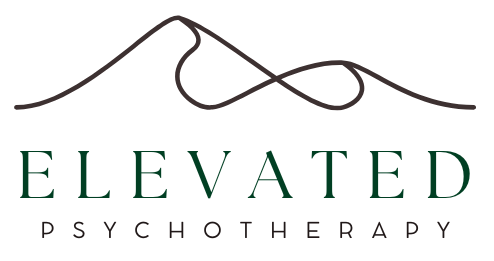
Scheduling your first therapy session can be both exciting and nerve-wracking. Here’s a guide to help you make the most of your initial sessions and build a successful therapeutic relationship.
Understanding the Fear of Starting Therapy
It’s common to feel anxious about beginning therapy. When I scheduled my first therapy session, I was extremely nervous about being so vulnerable with a total stranger. Fear of the unknown, concerns about vulnerability, and uncertainty about how therapy works can all contribute to pre-therapy jitters. Many people worry about being judged or doubt whether therapy will be helpful.
Common Misconceptions
Therapy is only for serious problems
Many people believe therapy is only for severe mental health issues. In reality, therapy can be beneficial for a wide range of concerns, from everyday stress to personal development. We can also help you improve your relationships, navigate your career, or implement healthy habits!
You have to have a mental illness to go to therapy
Therapy is not only for those with diagnosed mental illnesses. It can be a valuable resource for anyone seeking to improve their mental well-being, manage stress, or navigate life transitions.
Therapists will tell you what to do
Some expect therapists to give direct advice or solutions. Instead, therapists typically help you explore your thoughts and feelings, empowering you to make your own decisions and discover solutions. I tend to be more skills based in my approach, so I may suggest skills that could be helpful. However, you are the expert on your life and are in control of your decisions.
Therapy is just talking; it doesn’t involve real work
Therapy involves more than just talking. It often includes setting goals, practicing skills, and engaging in self-reflection. The therapeutic process requires active participation and effort from both you and your therapist.
The Importance of the Therapeutic Relationship
Research underscores the significance of the therapeutic relationship in achieving positive clinical outcomes. A strong, trusting relationship between therapist and client is crucial for effective therapy. Studies show that the quality of this relationship is one of the most significant predictors of treatment success.
Trust and Rapport
A positive therapeutic relationship fosters trust and rapport, making it easier for clients to share sensitive information and engage fully in the therapeutic process. When clients feel safe and understood, they are more likely to explore deep-seated issues and make meaningful progress. Good therapists are going to be nonjudgmental of your lifestyle, preferences, and concerns. Trust me, we have heard it all before! There likely isn’t anything that you would share that would shock us.
Collaboration and Engagement
An effective therapeutic relationship encourages collaboration between therapist and client. This partnership helps in setting and achieving goals, addressing challenges, and adapting treatment approaches based on feedback and progress.
Empathy and Support
Empathy from the therapist enhances the therapeutic alliance. Feeling genuinely understood and supported can significantly impact a client’s motivation and commitment to therapy, leading to better outcomes.
Tips for Building a Strong Therapeutic Relationship
Be Open and Honest
Share your thoughts and feelings candidly to build trust and allow your therapist to understand your needs better.
Communicate Your Preferences
Let your therapist know what approaches you prefer, helping them tailor the therapy to your comfort level.
Provide Feedback
Offer constructive feedback to help your therapist adjust their approach and better meet your needs.
Be Patient
Give yourself and your therapist time to build rapport and establish a productive working relationship.
What to Expect in Your First Therapy Session
In your initial therapy session, your therapist will likely ask about various aspects of your life to understand your background and current challenges. Here’s what you might discuss:
Mental Health History
You’ll review your mental health history, including any past diagnoses, treatments, and medications. This helps your therapist understand your previous experiences with mental health and treatment.
Family History
Discussing your family background can provide insight into how your family dynamics and upbringing may influence your current issues. This might include family mental health history and relationships.
Behaviors You Want to Work On
Identify specific behaviors or patterns you want to change. This could include habits, coping mechanisms, or ways of interacting with others that you find problematic or unhelpful.
Emotions You Struggle With
Talk about the emotions you find challenging, such as anxiety, depression, anger, or sadness. Exploring these emotions helps your therapist understand what you’re experiencing and how best to support you. You may also discuss how you tend to cope with emotions.
Status of Your Relationships
Discuss the current state of your relationships with family, friends, and partners. Understanding your social support system and relationship dynamics can be crucial in addressing issues effectively.
Your Goals
Share what you hope to achieve through therapy. Whether it’s improving your mood, developing coping skills, or navigating a life transition, setting clear goals helps guide the therapeutic process.
By addressing these areas, your first session will lay the groundwork for a tailored and effective therapeutic journey. Approach the session with openness and curiosity to make the most of your time with your therapist.
Conclusion
Starting therapy is a courageous step toward better mental health. By addressing common fears and misconceptions, and understanding the importance of a strong therapeutic relationship, you can approach therapy with greater confidence and openness. Embrace the process and remember that therapy is a partnership aimed at helping you achieve your personal goals and improve your overall well-being.
If you are ready to start your journey to a better life, schedule a free 15 minute consultation to see how I can help!
Share This Story
Ashley M. Allen, PsyD is a Colorado-based licensed clinical psychologist who sees clients virtually nationwide through PSYPACT. Dr. Allen specializes in LGBTQ+, alternative lifestyles, emotional disorders, ADHD, BPD and chronic illness. Stay tuned to her blog for tips on mental wellness.


